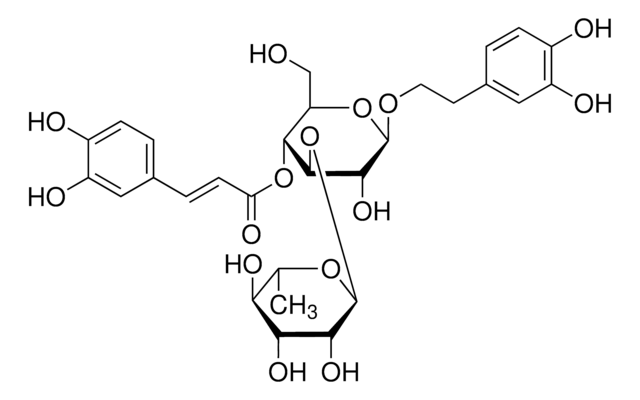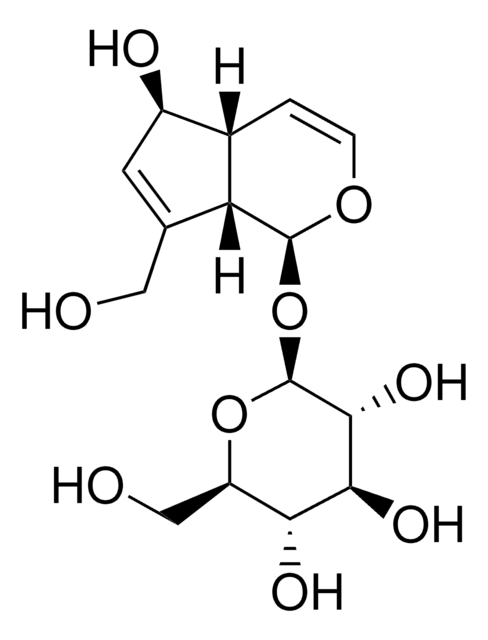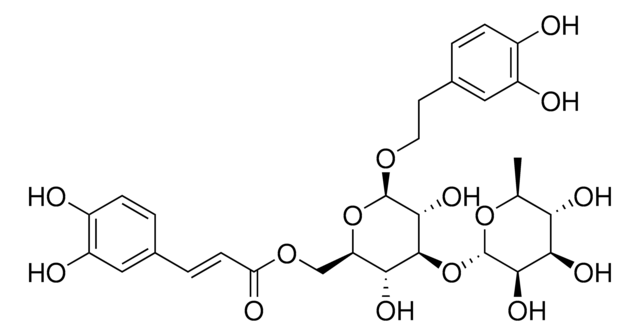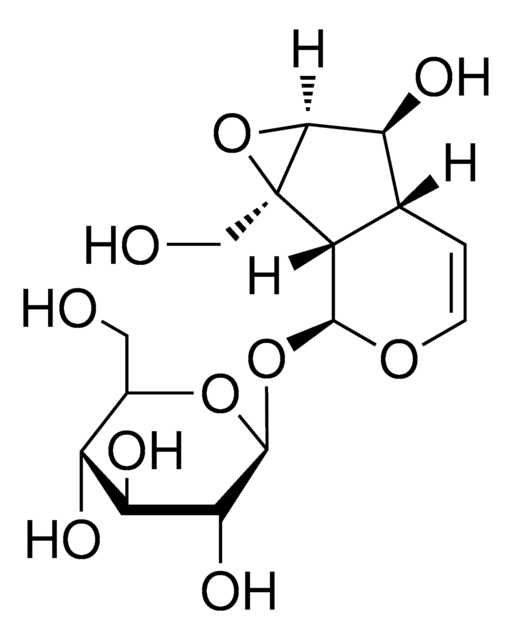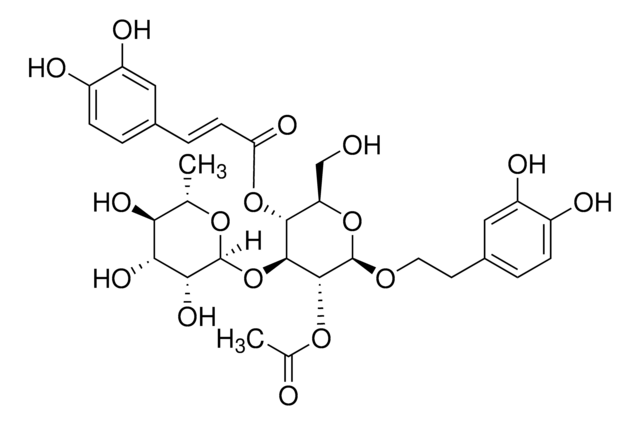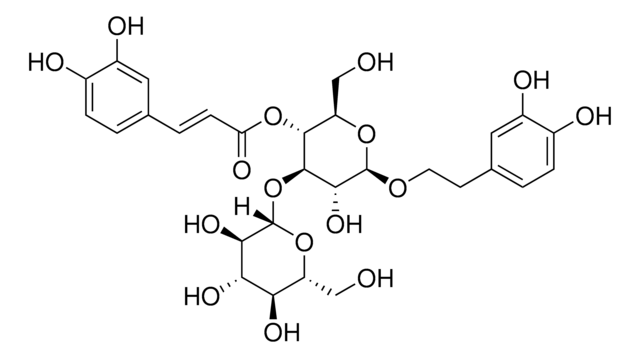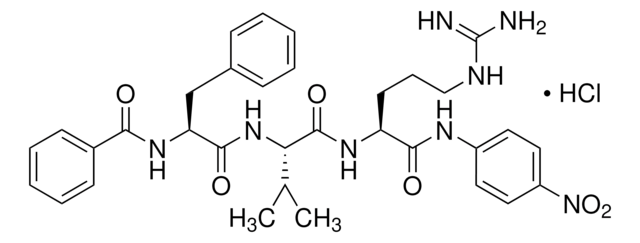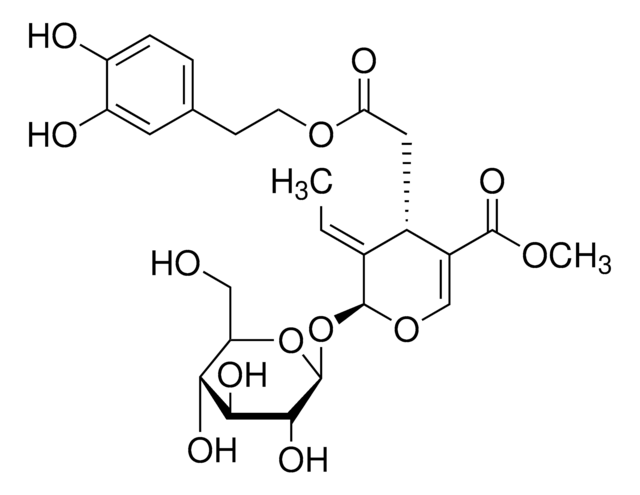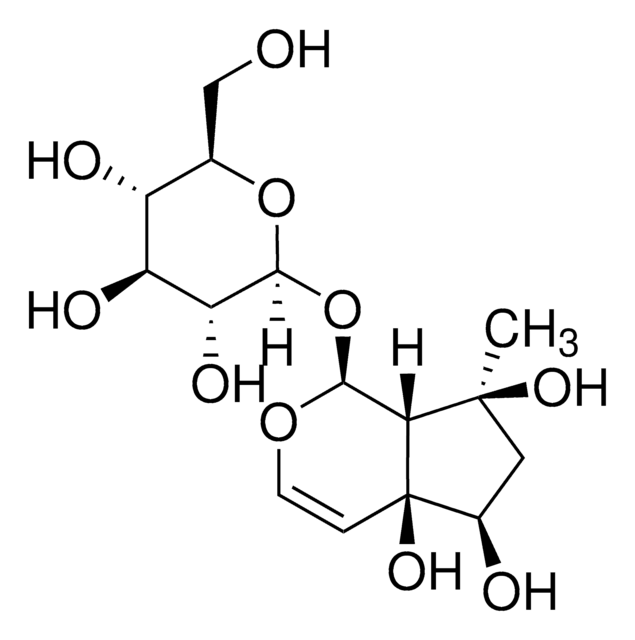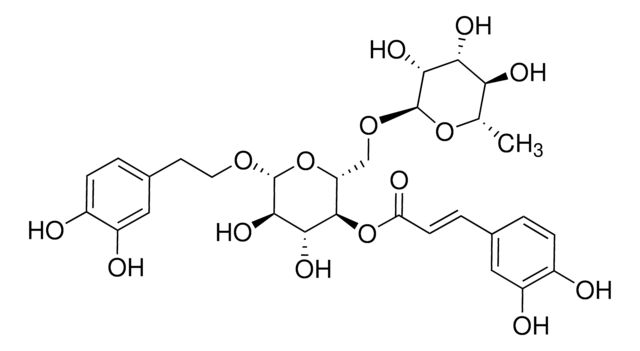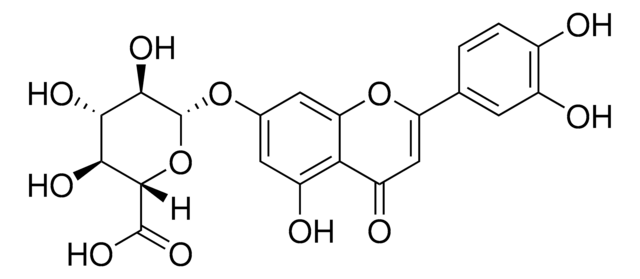V4015
Verbascoside
≥99% (HPLC)
Synonym(s):
Acetoside, Kusaginin
About This Item
Recommended Products
Quality Level
Assay
≥99% (HPLC)
application(s)
metabolomics
vitamins, nutraceuticals, and natural products
storage temp.
room temp
SMILES string
C[C@@H]1O[C@@H](O[C@@H]2[C@@H](O)[C@H](OCCc3ccc(O)c(O)c3)O[C@H](CO)[C@H]2OC(=O)\C=C\c4ccc(O)c(O)c4)[C@H](O)[C@H](O)[C@H]1O
InChI
1S/C29H36O15/c1-13-22(36)23(37)24(38)29(41-13)44-27-25(39)28(40-9-8-15-3-6-17(32)19(34)11-15)42-20(12-30)26(27)43-21(35)7-4-14-2-5-16(31)18(33)10-14/h2-7,10-11,13,20,22-34,36-39H,8-9,12H2,1H3/b7-4+/t13-,20+,22-,23+,24+,25+,26+,27+,28+,29-/m0/s1
InChI key
FBSKJMQYURKNSU-ZLSOWSIRSA-N
Looking for similar products? Visit Product Comparison Guide
General description
Application
- as a reference standard for high-performance liquid chromatography (HPLC) analysis
- as a reference standard for detection of phenolic compounds in olive mill wastewater and pomace by high-performance liquid chromatography (HPLC)-diode-array detector (DAD)-qTOF system
- to test its anti-viral activity against respiratory syncytial virus (RSV) in HEP2 cells and A549 cells
Biochem/physiol Actions
Storage Class Code
11 - Combustible Solids
WGK
WGK 3
Flash Point(F)
Not applicable
Flash Point(C)
Not applicable
Choose from one of the most recent versions:
Already Own This Product?
Find documentation for the products that you have recently purchased in the Document Library.
Customers Also Viewed
Our team of scientists has experience in all areas of research including Life Science, Material Science, Chemical Synthesis, Chromatography, Analytical and many others.
Contact Technical Service